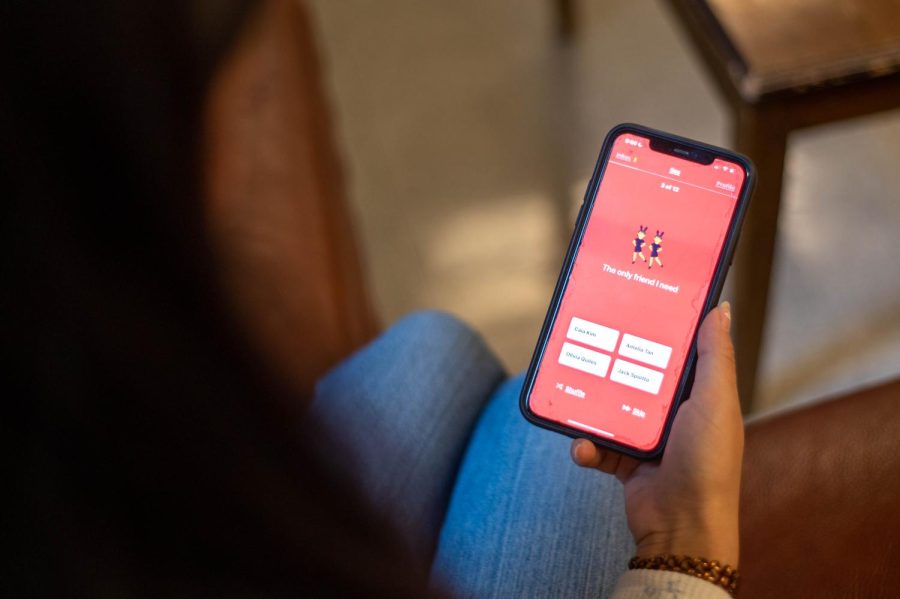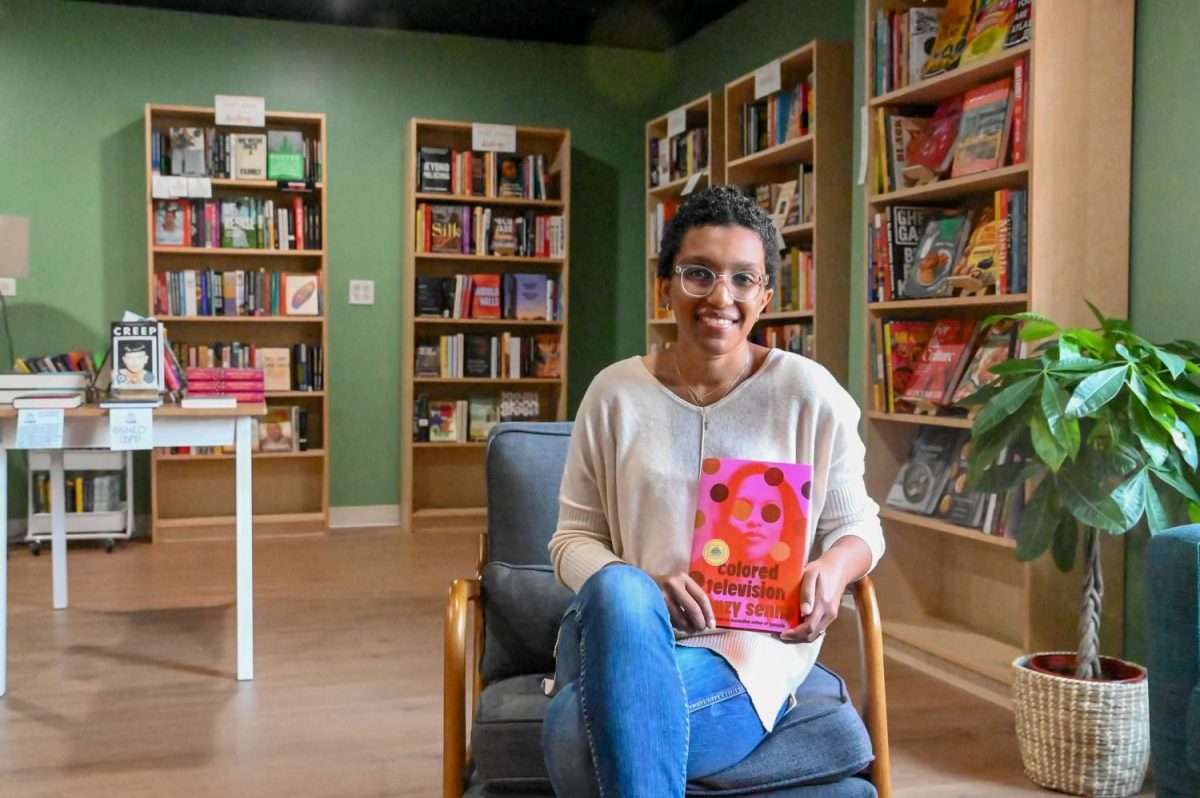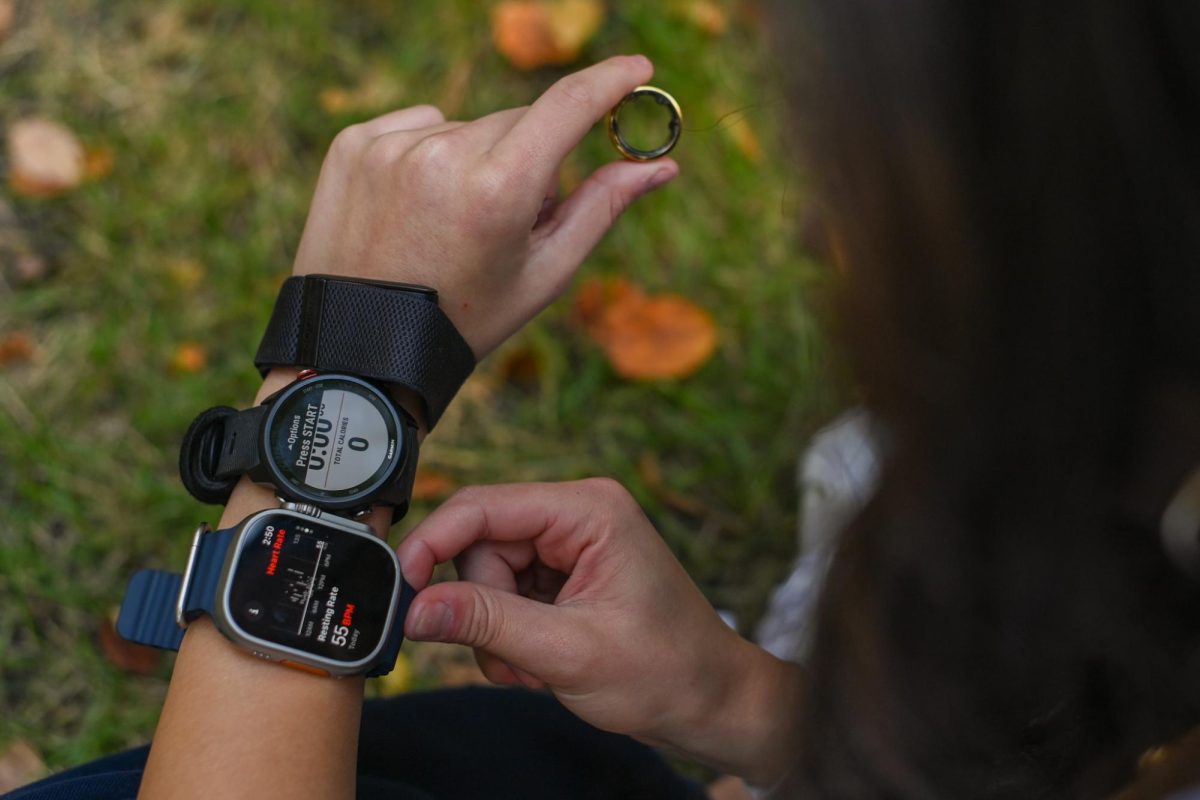Get Gassed: App fails to be less toxic than other social media platforms
A student opens the app Gas on their phone where they get different questions every hour.
November 9, 2022
Four names and a question light up a student’s phone. They can shuffle the names to get new choices or skip the question to get one of the 12 others they get for the hour. After the recipient clicks on a name, the chosen person will receive “flames” in their inbox indicating that they have been chosen by someone. The only information that will be given is the sender’s gender and grade. This is called giving “gas” — all part of a new app called Gas.
The new, anonymous social media platform is intended to bring positivity to the sometimes-harmful realm of social media. Although the app’s agenda is to make the social media experience less toxic, with the questions predetermined by the app, there are still ways that it can negatively affect students’ mental health.
Whit Waterstraat, a ninth grader, said he downloaded the Gas app because he saw his friends and classmates were using it.
“I mainly downloaded it because everyone else had it, and I really didn’t know what it was,” he said. “I downloaded it to see what everyone else was talking about.”
Despite the app’s open design, students don’t always follow what the creators intended the app to be. Whit said that when the app presents choices, he will usually pick his friends, which is what most people do.
“90% of the things you see in your inbox are going to be from your friends. I’ve noticed you can see all the activity and what people are saying about others,” Whit said. “People will choose other people’s names as a joke. And so there were moments of clear, almost making fun of or bullying another person.”
Michael Bruner, a U-High counselor, has seen these kinds of apps before. No matter what the app claims as its goal, the setup is still the same.
“I’m in the camp that says they have a negative effect. It’s nice that someone is reporting to create an app that is positive and nontoxic,” Mr. Bruner said. “But I think via the very design of the app they create toxicity, and they make people feel less-than, badly about themselves. One of the most toxic things is the like button on Facebook and Twitter.”
Although Gas doesn’t offer a “like” button like other social media apps, there are still ways it can reflect a person’s popularity. Then there are people who rarely get Gassed.
“What about the segment of folks who don’t get the likes,” Mr. Bruner said. “There’s going to be folks who don’t get Gassed, and yet they’re going to be on the app wanting, desiring that positive feedback. It worries me.”
People get this kind of feedback from real human interaction. Mr. Bruner thinks that there will never be a nontoxic social media platform because human connection is something that humans require.
“Maybe someday some group of folks will create an app that enables real connection. But, from my perspective now as I see it, there’s a filter between two human beings. Whether it’s Facebook or Gas or whatever, it’s not great,” Mr. Bruner said.
A recent update allows people to use the app’s currency or send invitations to friends revealing the first initial of the person who chose them.
Whit feels the new feature ruined the app because it made him feel uncomfortable, eventually causing his interest to fade.
“It felt like a one-hit wonder, like, very quickly died out,” Whit said, “like YOLO or sendit on Snap.”












